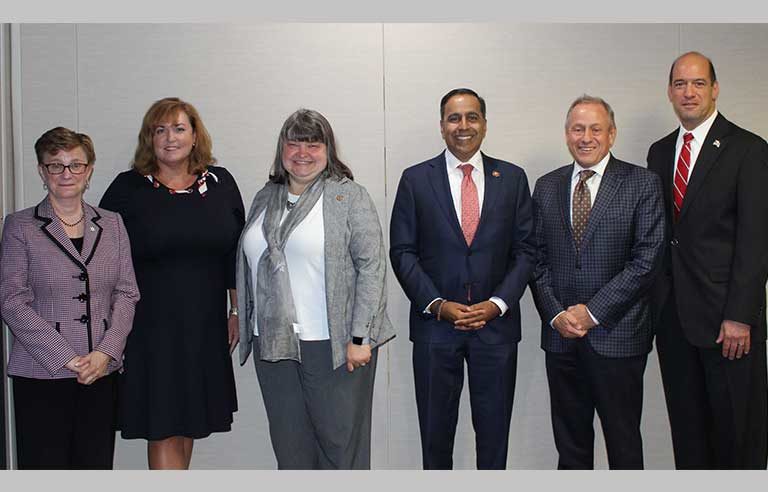Congressman spotlights SAFE TO DRIVE Act during NSC distracted driving panel discussion

Itasca, IL — Rep. Raja Krishnamoorthi (D-IL), who recently introduced bipartisan legislation aimed at curbing distracted driving, was among a group of legislators and advocates speaking Sept. 5 during a panel discussion hosted by the National Safety Council.
“We all play a role in distracted driving and in ensuring that the folks who are on our roadways get home safe every day,” said NSC President and CEO Lorraine M. Martin, who moderated the discussion.
At least 40,000 people have died on U.S. roads in each of the past three years, according to NSC statistics. That is more than 100 deaths a day.
“That is unacceptable,” Martin said. “There are lots of things we can do to change that tide. Addressing distracted driving is at the top of that list.”
Krishnamoorthi introduced the States Afforded Funding Extensions To Oppose Driving Recklessly In Vehicular Engagements Act (H.R. 2416), or the SAFE TO DRIVE Act, in the House on April 30 with the support of Reps. Mike Gallaher (R-WI) and Steve Cohen (D-TN). The legislation calls for creating two supplemental grants for states to have easier access to funds from the National Highway Traffic Safety Administration to be used for distracted driving education programs.
“It’s not asking for more money,” Krishnamoorthi said. “It’s trying to make sure the money that’s already been allocated actually gets out to the states so they can use it. There’s no good reason why we can’t make progress now.”
In 2018, Krishnamoorthi said, 30 states applied for NHTSA grants, but only four qualified to receive them. Some of the denials resulted from the states being unable to meet the grant’s stringent guidelines.
“NHTSA says states must establish a minimum $25 violation for texting and driving,” he said. “Many states use maximum fines, and thus would not qualify. Simply put, many states are attempting to meet the spirit of the law, but they’re not able to meet the letter of the law.”
Cathy Chase, president of Washington, D.C.-based Advocates for Highway and Auto Safety, shared Krishnamoorthi’s frustration with the current grant application process.
“This money is being left on the table, unfortunately,” Chase said, “and it could be used to enhance motor vehicle safety.”
Dave Nadig, senior vice president and deputy general counsel for The Allstate Corp., concurred. “This is money we want to spend,” he said. “These funds are to benefit the public good. I feel like this is a bill that breaks through the red tape.”
DuPage County (IL) State’s Attorney Bob Berlin noted that, in 2018, law enforcement officers in his county wrote 9,300 citations for violation of its electronic device statute. This year, the county is on pace to issue more than 10,000 citations for drivers using cellphones and other devices.
“This is one of those offenses that we’re not going to arrest and prosecute our way out of the problem,” Berlin said. “It really is about education.”
Along with the constant distraction of cellphones, Illinois Rep. Diane Pappas (D-Itasca) said she has seen drivers apply makeup and even read newspapers.
“We have found all sorts of ways to distract ourselves while driving before technology made it easier,” Pappas said. “We need to educate people.”

